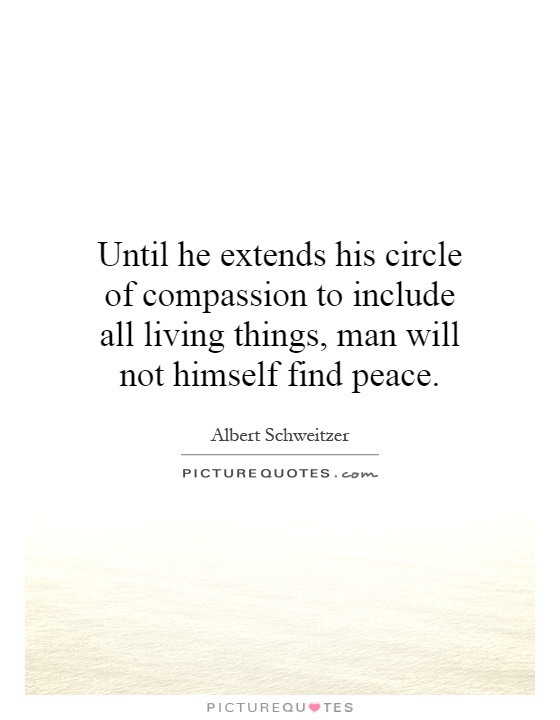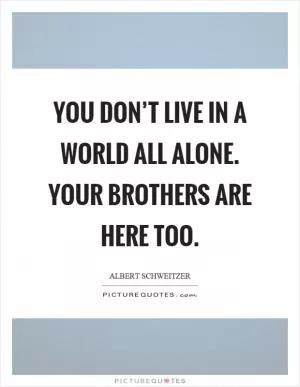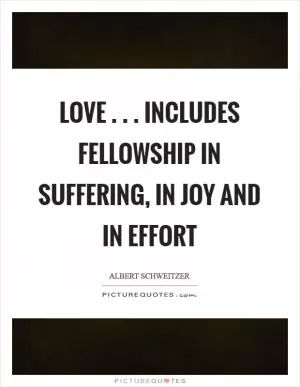Until he extends his circle of compassion to include all living things, man will not himself find peace

Until he extends his circle of compassion to include all living things, man will not himself find peace
Albert Schweitzer, a renowned theologian, philosopher, and physician, once said, "Until he extends his circle of compassion to include all living things, man will not himself find peace." This powerful statement encapsulates Schweitzer's belief in the interconnectedness of all life and the importance of compassion in achieving inner peace.Schweitzer's philosophy was deeply rooted in the idea of reverence for life. He believed that all living beings, human and non-human alike, are interconnected and deserving of compassion and respect. By extending our circle of compassion to include all living things, we not only improve the well-being of others but also find peace within ourselves.
In today's world, where environmental degradation, animal cruelty, and social injustice are rampant, Schweitzer's message is more relevant than ever. The exploitation of natural resources, the destruction of habitats, and the mistreatment of animals are all symptoms of a lack of compassion and respect for life. When we view the world through a lens of interconnectedness and extend our compassion to all living beings, we can begin to heal the wounds of our planet and find peace within ourselves.
Schweitzer's own life was a testament to his philosophy of compassion and reverence for life. As a physician, he dedicated himself to providing medical care to the impoverished and underserved in Africa. He believed that all beings, regardless of their species or social status, deserved to live a life free from suffering. Schweitzer's work in Africa not only improved the health and well-being of countless individuals but also inspired others to follow in his footsteps and extend their circle of compassion to include all living things.












 Friendship Quotes
Friendship Quotes Love Quotes
Love Quotes Life Quotes
Life Quotes Funny Quotes
Funny Quotes Motivational Quotes
Motivational Quotes Inspirational Quotes
Inspirational Quotes